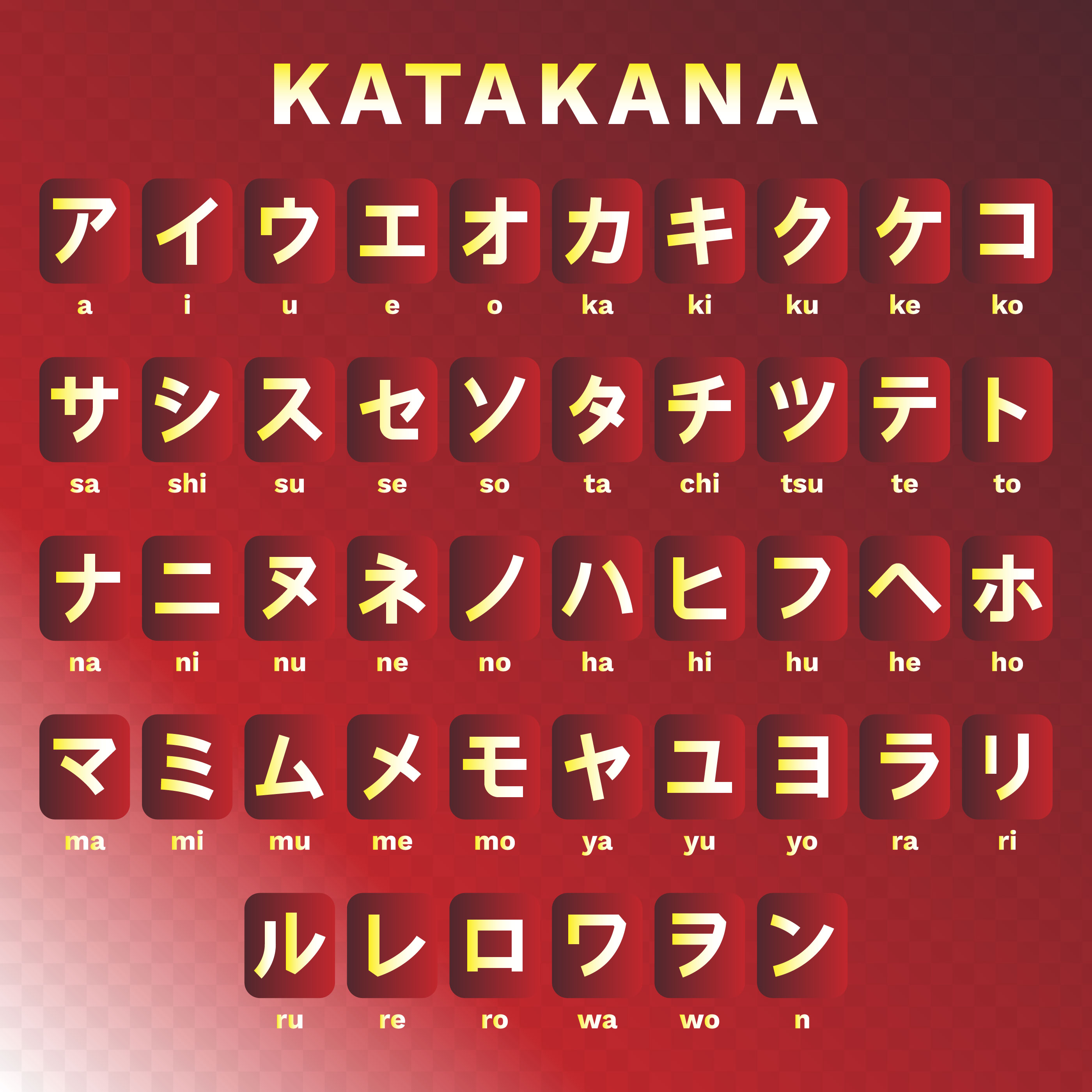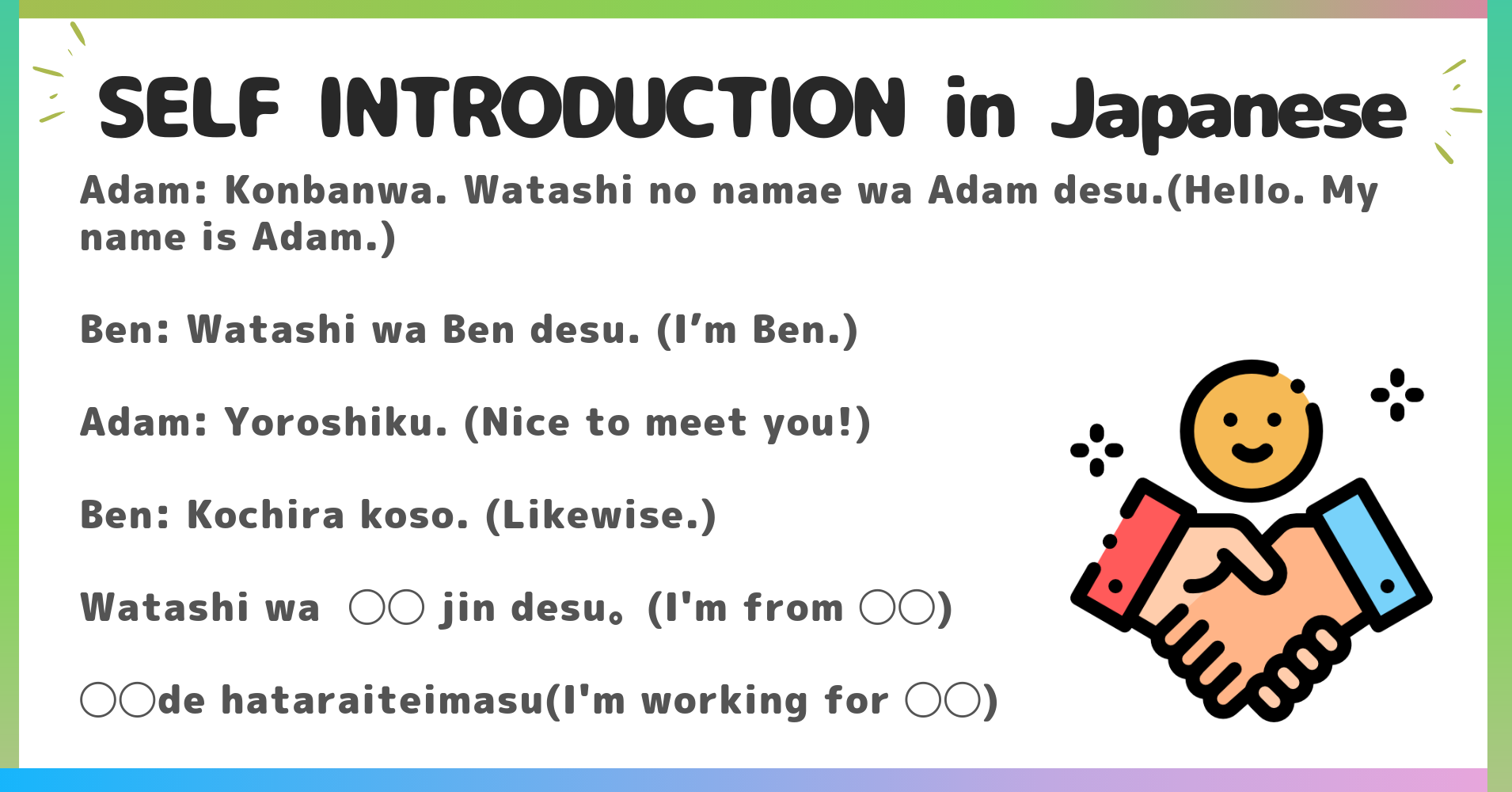How about you in japanese language – How about you in Japanese? Discover the nuances and cultural significance of this essential phrase for seamless communication in Japan. Delve into its polite variations, regional differences, and the importance of body language and tone to convey the utmost respect and understanding.
This comprehensive guide provides an in-depth exploration of the Japanese phrase “How about you?”, empowering you to navigate conversations with confidence and cultural sensitivity.
Japanese Phrase: How About You
The Japanese phrase for “How about you?” is “Anata wa ikaga desu ka?”. It is used to ask someone how they are doing or what they think about something.
The phrase is typically used in polite conversation, and it can be used in a variety of contexts. For example, you might use it to ask someone how they are doing after they have just told you about something that happened to them, or you might use it to ask someone what they think about a movie or a restaurant.
Examples of usage
- After someone has told you about something that happened to them:
- To ask someone what they think about something:
You:Anata wa ikaga desu ka? (How are you doing?)
Other person:Genki desu. (I’m fine.)
You:Anata wa sono eiga o dou omoimasu ka? (What do you think of that movie?)
Other person:Omoshirokatta desu. (It was interesting.)
Polite Variations
In Japanese, there are several polite variations of “How about you?” that can be used depending on the situation and the level of formality required.
The most common and versatile variation is O genki desu ka, which can be used in most situations and is appropriate for both friends and acquaintances. It literally means “Are you in good health?” but is generally understood as a polite way of asking “How are you?”
More Formal Variations
For more formal situations, such as when speaking to a superior or someone you do not know well, there are several more formal variations that can be used:
- Osugode gozaimasu ka: This is a very formal way of asking “How are you?” and is typically used in very formal settings, such as business meetings or official events.
- Odaijoubu desu ka: This is a slightly less formal way of asking “How are you?” and is appropriate for use in most formal situations.
- Ogenki de irasshaimasu ka: This is a very polite way of asking “How are you?” and is typically used when speaking to someone who is older or of higher status.
Cultural Context

In Japanese culture, asking “How about you?” is not just a polite gesture, but it also reflects the emphasis on politeness, respect, and consideration for others. It shows that the speaker is interested in the other person’s well-being and is not solely focused on themselves.
The phrase also aligns with the Japanese concept of “tatemae,” which refers to the outward expression of conformity to social norms and expectations. By asking “How about you?”, the speaker demonstrates that they are aware of and adhere to these social conventions, creating a harmonious and respectful atmosphere.
Etiquette and Social Context
The usage of “How about you?” varies depending on the social context and the relationship between the speakers. In formal settings, such as business meetings or interactions with superiors, it is considered polite to ask “How about you?” after the other person has finished speaking or expressing their opinion.
This shows that the speaker is listening attentively and is respectful of the other person’s views.
In informal settings, such as among friends or family, asking “How about you?” can be a way to show concern and interest in the other person’s well-being. It can also be used to initiate a conversation or to keep a conversation going.
Non-Verbal Cues, How about you in japanese language
In addition to the verbal expression, non-verbal cues also play a role in conveying the sincerity and politeness of asking “How about you?” in Japanese. These cues include maintaining eye contact, nodding in agreement, and using appropriate gestures and body language.
By combining the verbal phrase with appropriate non-verbal cues, the speaker can effectively convey their genuine interest in the other person and their well-being, fostering a positive and respectful social interaction.
Regional Differences

The usage of “How about you?” in Japanese can vary regionally, with different ways of expressing the phrase in different parts of the country.
For example, in the Kansai region (including Osaka and Kyoto), the phrase “どない?” (dōnai?) is commonly used as a casual way to ask “How about you?” In the Tohoku region (northern Japan), “どげすか?” (dogesuka?) is a similar casual expression.
Formal Variations
In formal settings, the phrase “いかがですか?” (ikagadesuka?) is more appropriate and widely understood throughout Japan. It is a polite way to ask “How about you?” and can be used in a variety of situations, including business meetings and social gatherings.
Body Language and Tone: How About You In Japanese Language
Body language and tone are crucial when asking “How about you?” in Japanese. The appropriate level of politeness and respect should be conveyed to align with the social context.
Nonverbal Cues
Maintain a respectful posture by sitting or standing upright, avoiding slouching or leaning. Maintain eye contact to show engagement and interest. A slight nod or bow can convey appreciation and respect.
Tone of Voice
Use a polite and respectful tone of voice. Avoid speaking too loudly or aggressively. A slightly softer and warmer tone can convey sincerity and consideration.
Facial Expressions
Maintain a friendly and open facial expression. A genuine smile can convey warmth and approachability. Avoid excessive smiling or laughing, as it may come across as insincere or disrespectful.
Conclusion

Mastering the art of “How about you?” in Japanese not only enhances your communication skills but also deepens your appreciation for Japanese customs and etiquette. Embrace the subtleties of this phrase to build meaningful connections and leave a lasting impression.
Questions and Answers
What is the most common way to say “How about you?” in Japanese?
The most common way to say “How about you?” in Japanese is “O genki desu ka?” (お元気ですか?).
Are there any regional variations in the usage of “How about you?” in Japanese?
Yes, there are some regional variations in the usage of “How about you?” in Japanese. For example, in the Kansai region, people often say “O-kini desu ka?” (お元気ですか?) instead of “O genki desu ka?” (お元気ですか?).
Is it important to use body language and tone when asking “How about you?” in Japanese?
Yes, it is important to use body language and tone when asking “How about you?” in Japanese. Body language and tone can convey respect and politeness, which is important in Japanese culture.